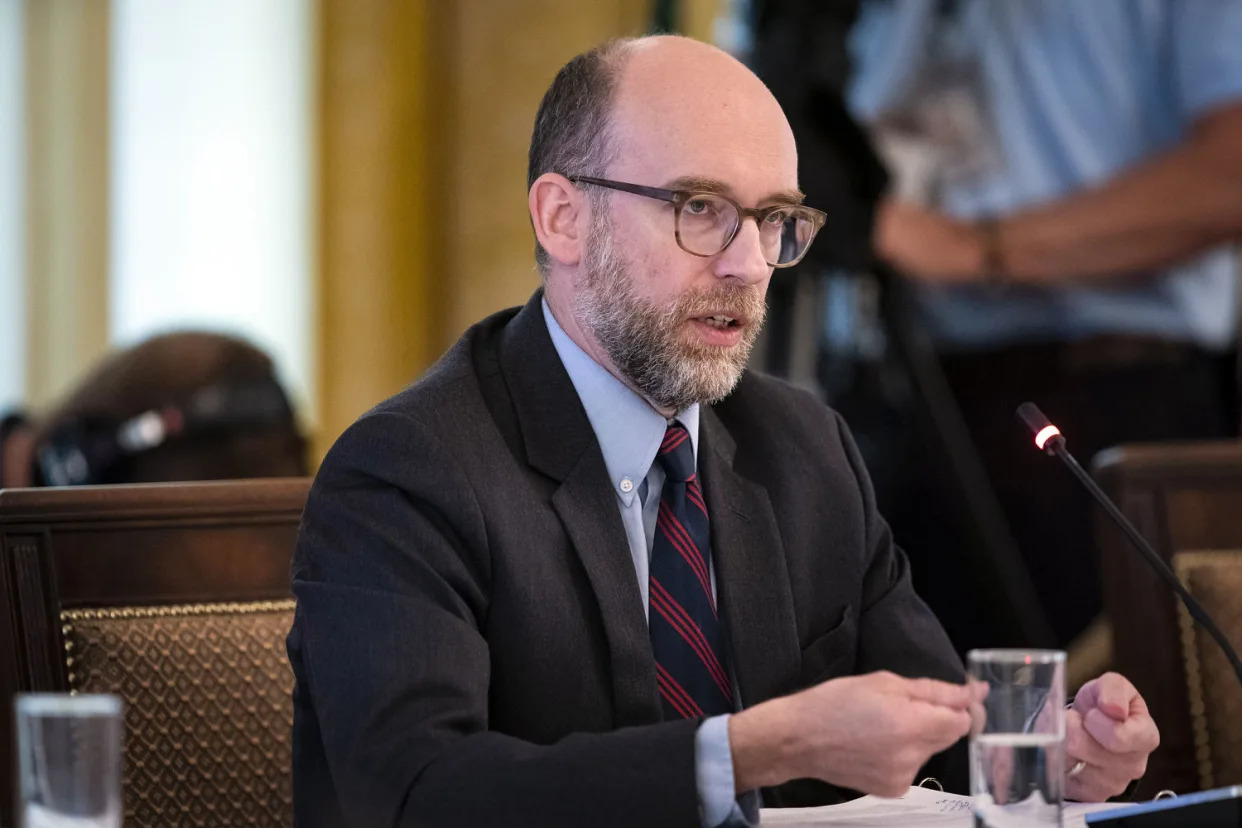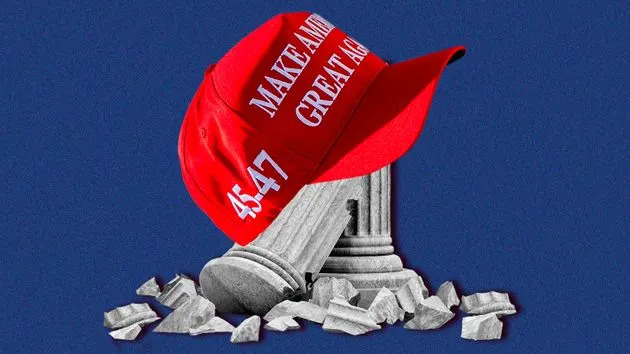Why Does the Government Borrow When It Can Print?
In the first seven months of Fiscal Year (FY) 2024, net interest (payments minus income) on the federal debt reached $514 billion, exceeding spending on both national defense ($498 billion) and Medicare ($465 billion). The interest tab also exceeded all the money spent on veterans, education, and transportation combined. Spending on interest is now the second largest line item in the federal budget after Social Security and the fastest growing part of the budget, on track to reach $870 billion by the end of 2024.
According to the Congressional Budget Office, the federal budget deficit was $857 billion in the first seven months of fiscal year 2024. In effect, the government is borrowing at interest to pay the interest on its debt, compounding the debt. For the lender, it’s called “the miracle of compound interest” – interest on interest compounds exponentially. But for the debtor, it’s a curse, compounding like a cancer to the point of devouring assets while still growing the debt. As Daniel Amerman, a chartered financial analyst, writes in an article titled “Could A Compound Interest Wildfire Threaten U.S. Solvency?”:
[T]he greatest debt-related threat to the solvency of the United States government and the value of the dollar could be the fact that the U.S. isn’t actually making any net principal or interest payments on its debt.
That is, the U.S. government is borrowing money to make the interest payments, even as it borrows to roll over the principal payments – even as it borrows still more to fund the general spending which is in excess of taxes collected.
This creates the risk of a potential compounding and acceleration of interest payments on that debt. …
In other words, the US government is effectively insolvent, absent some major changes. Which is exactly why we need to anticipate that there will be major changes.
The Committee for a Responsible Budget similarly concludes, “Without reforms to reduce the debt and interest, interest costs will keep rising, crowd out spending on other priorities, and burden future generations.” In fact, we are that future generation. The chickens have come home to roost. According to USDebtClock.org, the debt is now $34.8 trillion. Estimates are that we would need to tax everyone at a rate of 40%, without deductions, to balance the budgets of our federal and local governments, an obvious nonstarter. Reforms are necessary, but of what sort?
Why Does the Government Borrow Its Own Currency?
This question was asked of economist Martin Armstrong, who responded:
The theory was that if you borrowed rather than printed money, you were NOT increasing the existing money supply, and therefore, in theory, it would not be inflationary.
That would be true if the debt were paid back, but today the government does not repay the debt but just keeps rolling it over, paying off old bonds as they come due with new bonds – currently at higher interest rates. Armstrong concludes:
We borrow, which is worse than printing because we have to pay interest on constantly rolling the debt. This year, we will spend about $1 trillion on interest, the total national debt when Reagan took office in 1981 .…
Had we printed the money instead of borrowing, it would have been less inflationary and the capital would have created more jobs instead of investing in government debt which has only funded the Neocons’ wildest dreams [which he explained as “establishing military bases everywhere”]. [Emphasis added.]
A report issued by the Grace Commission during the Reagan Administration concluded that at that time, most federal income tax revenues went just to pay the interest on the government’s burgeoning debt. A cover letter addressed to President Reagan stated that a third of all income taxes were consumed by waste and inefficiency in the federal government. Another third of any taxes actually paid went to make up for the taxes not paid by tax evaders and the growing underground economy, a phenomenon that had blossomed in direct proportion to tax increases. The report concluded:
With two-thirds of everyone’s personal income taxes wasted or not collected, 100 percent of what is collected is absorbed solely by interest on the Federal debt and by Federal Government contributions to transfer payments. In other words, all individual income tax revenues are gone before one nickel is spent on the services which taxpayers expect from their Government.
As Thomas Edison observed in 1921:
If our nation can issue a dollar bond, it can issue a dollar bill. The element that makes the bond good, makes the bill good, also. The difference between the bond and the bill is that the bond lets money brokers collect twice the amount of the bond and an additional 20%, whereas the currency pays nobody but those who contribute directly in some useful way.
It is absurd to say that our country can issue $30 million in bonds and not $30 million in currency. Both are promises to pay, but one promise fattens the usurers and the other helps the people.
It is cheaper to print money outright than to borrow money at interest that is never repaid. The Greenbackers who marched on Washington in 1897 were right. We should be printing the money – not for speculative ventures (“unearned income”) but for productive endeavors. The Greenbackers sought a return to the system in which Lincoln’s government issued U.S. Notes or Greenbacks directly, in order to avoid a crippling debt to British bankers. They were marching for the economic producers — the farmers and factory workers, represented by the Scarecrow and Tin Man in The Wizard of Oz, which took its plot from that first-ever march on Washington.
Won’t just printing the money result in hyperinflation? Not necessarily. Price inflation results from too much money chasing too few goods. When the money is used to create new goods and services, prices remain stable. This was demonstrated by the Chinese when they increased the money supply by a factor of 1800% (18 times) in the 23 years between 1996 and 2020. The new money went toward infrastructure and other forms of productivity, increasing GDP at the same rate; and price inflation remained consistently low during that period.
But hindsight is 20/20. What can be done now about the ballooning federal debt and interest bill?
Possible Treasury Solutions
Hypothetically, the Treasury could buy back its debt. But under our current system, this would have to be done with more debt, at even higher interest rates. In fact, the Treasury is doing that now, but in modest proportions and for a different purpose. Its goal is to create a liquid market in long-term Treasuries, the sort of bonds that Silicon Valley Bank was forced to sell at a deep discount, generating insufficient funds to ward off the massive run on its deposits in March 2023. Nearly 200 banks were found to be in similar straits and equally vulnerable to runs. However, it would be counterproductive for the Treasury to buy back major portions of its debt with more debt at higher interest, which would just compound the debt and the interest burden.
Alternatively, it could issue 35 trillion-dollar coins.
The idea of minting large denomination coins to solve economic problems was evidently first suggested by a chairman of the Coinage Subcommittee of the U.S. House of Representatives in the early 1980s. He pointed out that the government could pay off its entire debt with some billion-dollar coins – effectively just “printing” or “coining” the money. The Constitution gives Congress the power to coin money and regulate its value, and no limit is put on the value of the coins it creates. Of course, today these would need to be trillion dollar coins.
In legislation initiated in 1982, however, Congress chose to impose limits on the amounts and denominations of most coins. The one exception was the platinum coin, which a special provision allowed to be minted in any amount for commemorative purposes.
In 2013, an attorney named Carlos Mucha, blogging under the pseudonym Beowulf, proposed issuing a platinum coin to capitalize on this loophole; and with the endless gridlock in Congress over the debt ceiling, it got picked up by serious economists as a way to checkmate the deficit hawks. Philip Diehl, former head of the U.S. Mint and co-author of the platinum coin law, confirmed that the coin would be legal tender:
In minting the $1 trillion platinum coin, the Treasury Secretary would be exercising authority which Congress has granted routinely for more than 220 years … under power expressly granted to Congress in the Constitution (Article 1, Section 8).
Minting trillion dollar coins evokes images of million-mark notes filling wheelbarrows. But as economist Michael Hudson observes:
Every hyperinflation in history has been caused by foreign debt service collapsing the exchange rate. The problem almost always has resulted from wartime foreign currency strains, not domestic spending.
Prof. Randall Wray explained that the coin would not circulate but would be deposited in the government’s account at the Fed, so it could not inflate the circulating money supply. The budget would still need Congressional approval. To keep a lid on spending, Congress would just need to abide by some basic rules of economics. It could spend on goods and services up to full employment without creating price inflation (since supply and demand would rise together). After that, it would need to tax — not to fund the budget, but to shrink the circulating money supply and avoid driving up prices with excess demand.
If issuing 35 coins worth a trillion dollars each seems too radical, the Treasury could issue just one trillion-dollar coin annually, earmarked specifically to cover the interest. A similar hybrid approach worked for the Pennsylvania colonists when they formed their first government-owned bank in the early 18th century. Other colonies were issuing “Colonial scrip,” but it was easier to issue the scrip than to tax it back, and they typically issued too much, inflating the money supply and devaluing the currency. The Pennsylvania colonists formed a “land bank” and issued money as loans to the farmers at 5% interest. To cover the interest not created in the original loans, the government was able to issue paper scrip directly to fund its own budget. As a result, Pennsylvania became the most productive economy in the colonies.
What About Tapping Up the Federal Reserve?
The Fed is in a position to issue money interest-free, not as the bank-created deposits circulating as our M2 money supply, but as the reserves needed by banks to meet interbank transfers and withdrawals. When the Fed buys federal securities, it is mandated to return the interest to the Treasury after deducting its costs.
In 2011, Republican presidential candidate Ron Paul proposed dealing with the debt ceiling by simply voiding out the $1.7 trillion in federal securities then held by the Fed. As Stephen Gandel explained Paul’s solution in Time Magazine, the Treasury pays interest on the securities to the Fed, which returns 90% of these payments to the Treasury. Despite this shell game of payments, the $1.7 trillion in U.S. bonds owned by the Fed is still counted toward the debt ceiling.
Paul’s plan: “Get the Fed and the Treasury to rip up that debt. It’s fake debt anyway. And the Fed is legally allowed to return the debt to the Treasury to be destroyed.”
Congressman Alan Grayson, a Democrat, also endorsed this proposal.
But since June 2022, the Fed has not been buying securities but has been selling those it already has, reducing its balance sheet in an effort to fight price inflation by shrinking the money supply through “quantitative tightening.” The central bank is considered “independent” of Congress, but arguably Congress could revise the Federal Reserve Act to require the Fed to buy federal securities.
A Financial Transaction Tax
Barring those alternatives, another possibility is a very small financial transaction tax. In a 2023 book titled A Tale of Two Economies: A New Financial Operating System for the American Economy, Wall Street veteran Scott Smith argues that we are taxing the wrong things – income and physical sales. In fact, we have two economies – the material economy in which goods and services are bought and sold, and the monetary economy involving the trading of financial assets (stocks, bonds, currencies, etc.) – basically “money making money” without producing new goods or services.
Drawing on data from the Bank for International Settlements and the Federal Reserve, Smith shows that the monetary economy is hundreds of times larger than the physical economy. The budget gap could be closed by imposing a tax of a mere 0.1% on financial transactions, while eliminating not just income taxes but every other tax we pay today. For a financial transactions tax (FTT) of 0.25%, we could fund benefits we cannot afford today that would stimulate growth in the real economy, including not just infrastructure and development but free college, a universal basic income, and free healthcare for all. Smith contends we could even pay off the national debt in 10 years or less with a 0.25% FTT.
Are these proposals too radical? Perhaps, but existential crises call for radical solutions.
• This article was first posted as an original to ScheerPost.com.
Ellen Brown is an attorney, co-chair of the Public Banking Institute, and author of thirteen books including Web of Debt, The Public Bank Solution, and Banking on the People: Democratizing Money in the Digital Age. She also co-hosts a radio program on PRN.FM called “It’s Our Money.” Her 400+ blog articles are posted at EllenBrown.com. Read other articles by Ellen.








